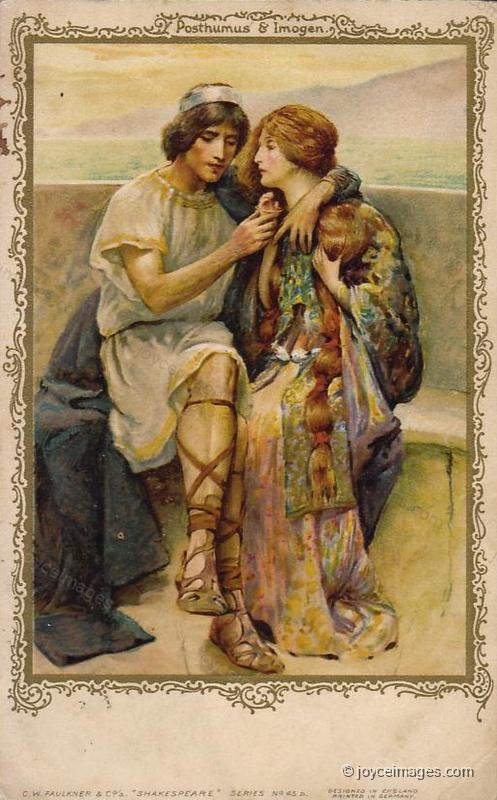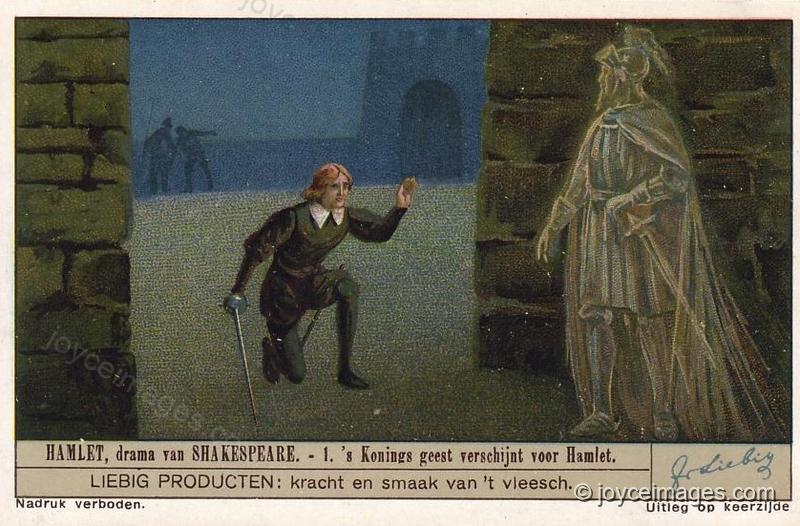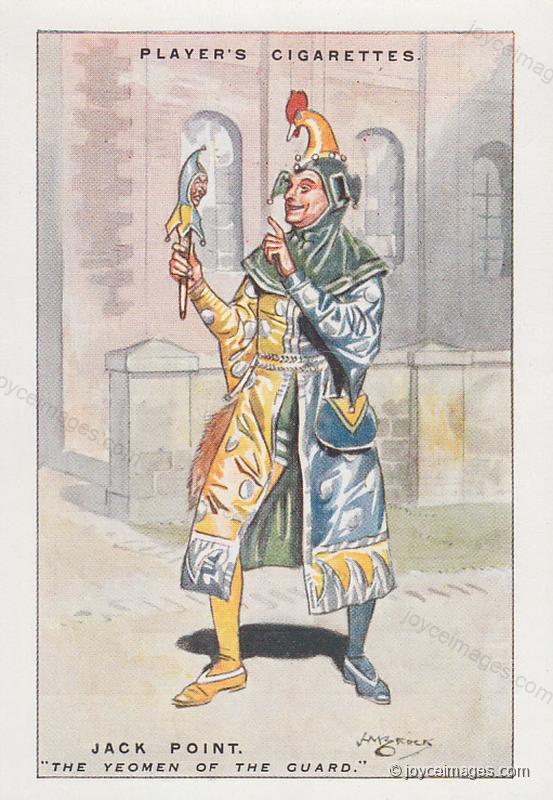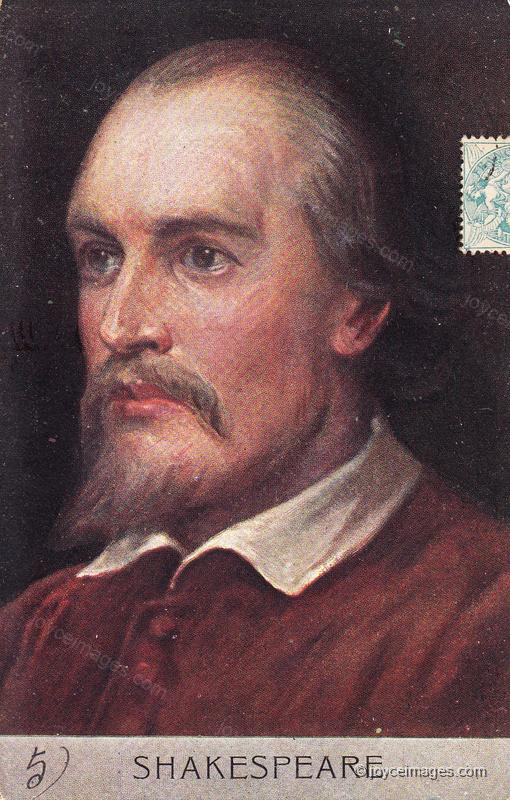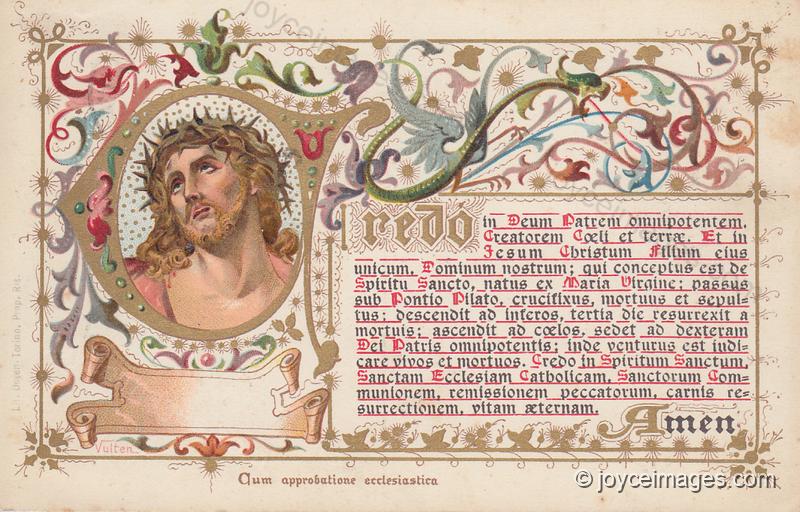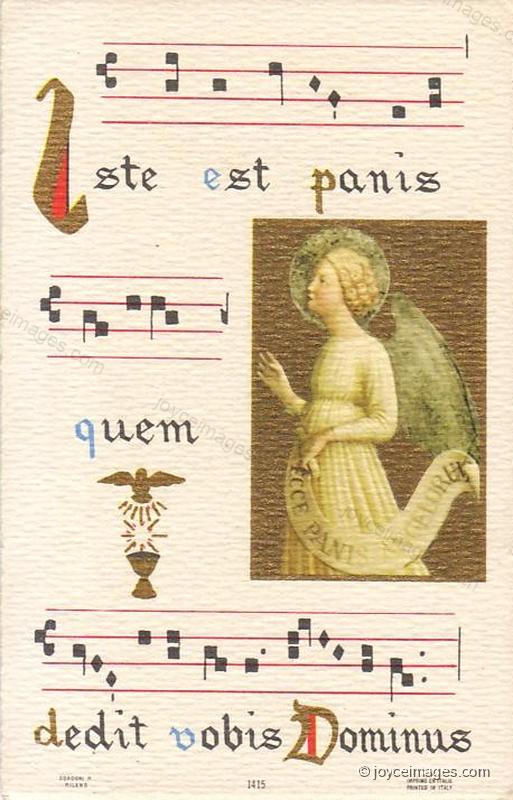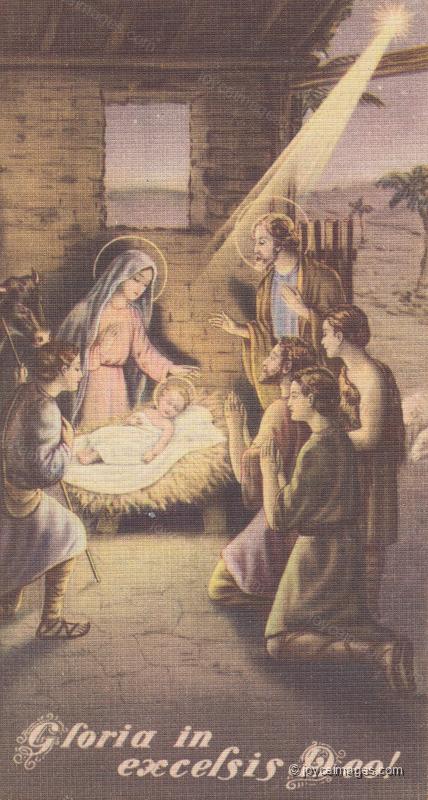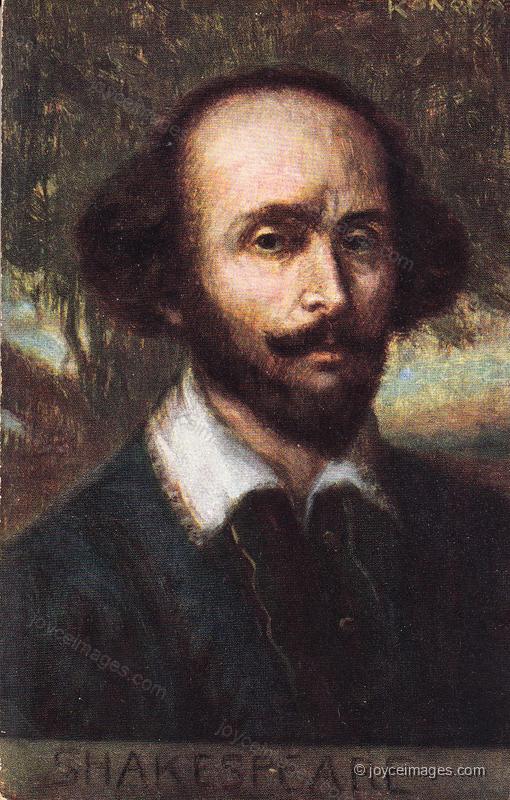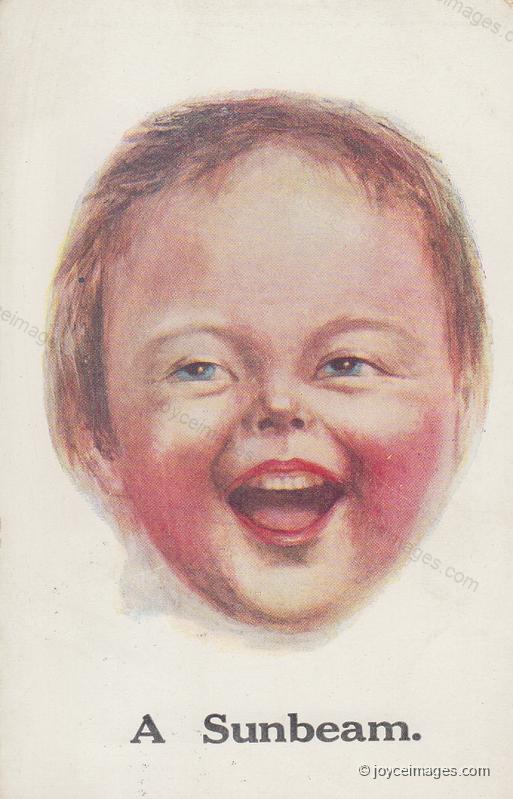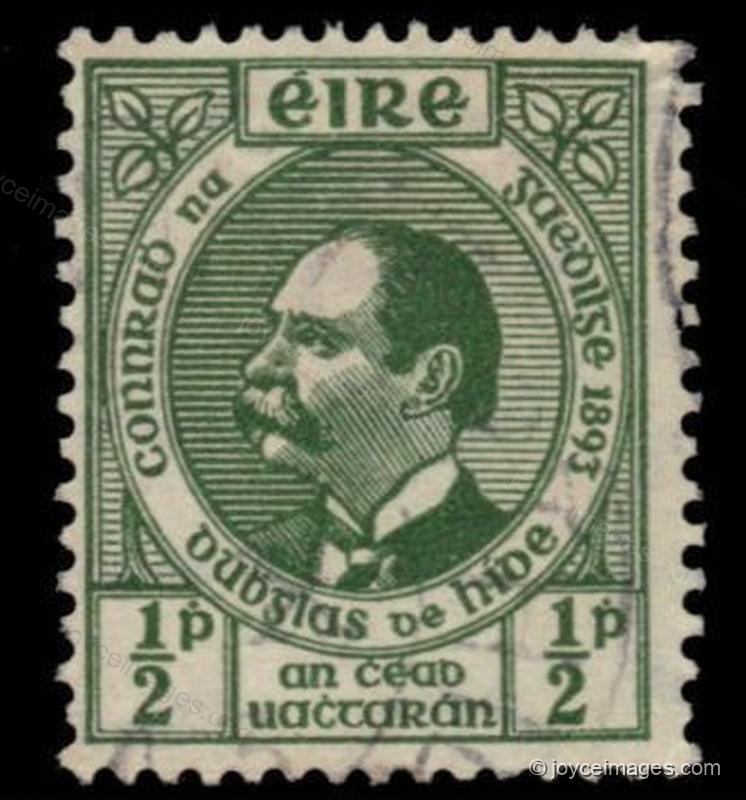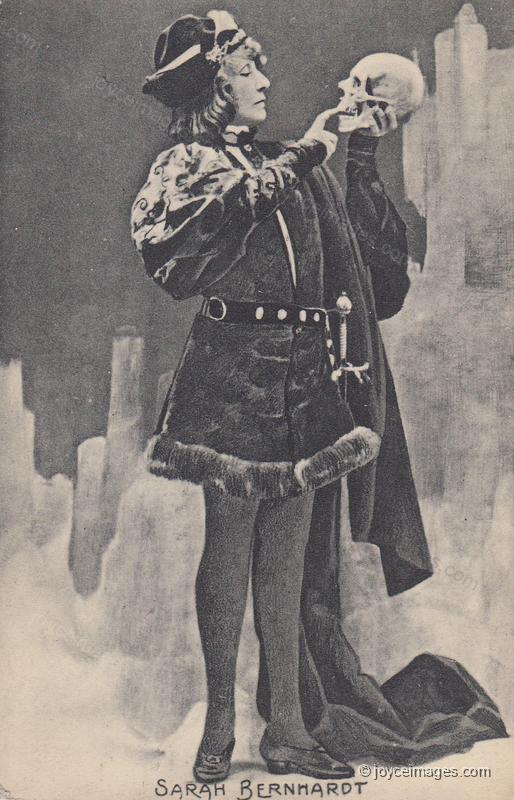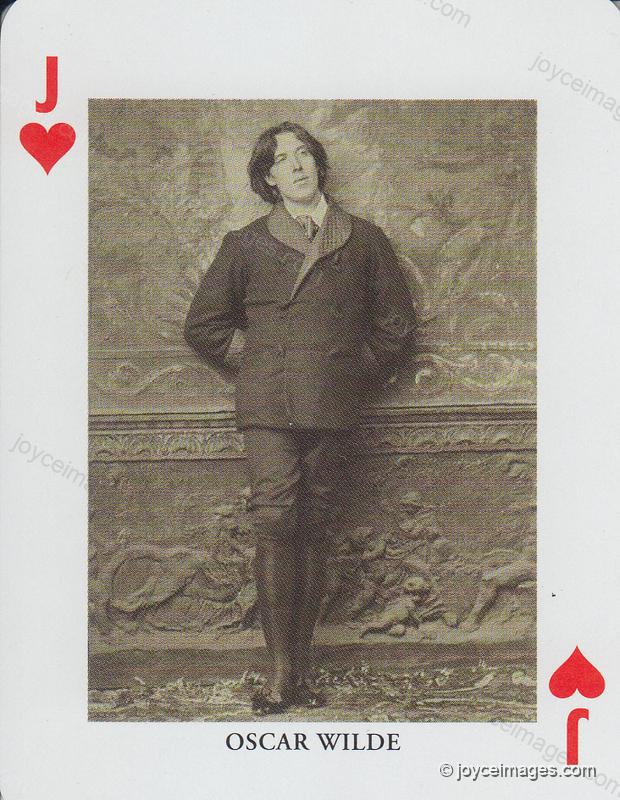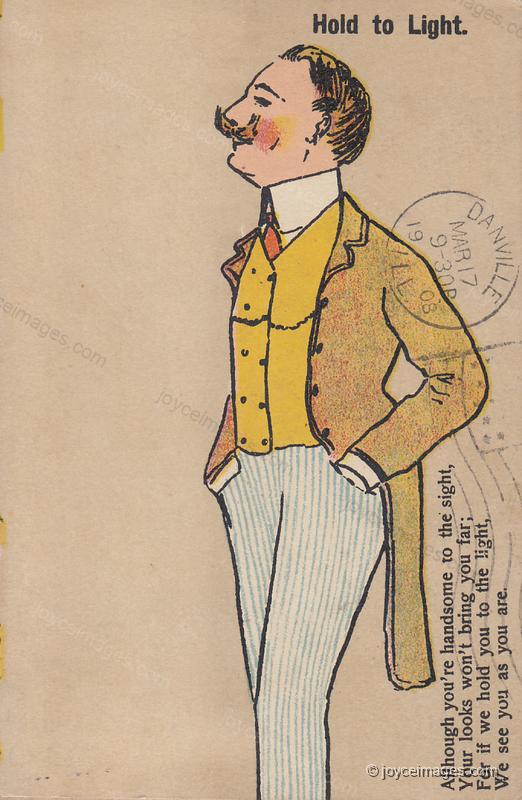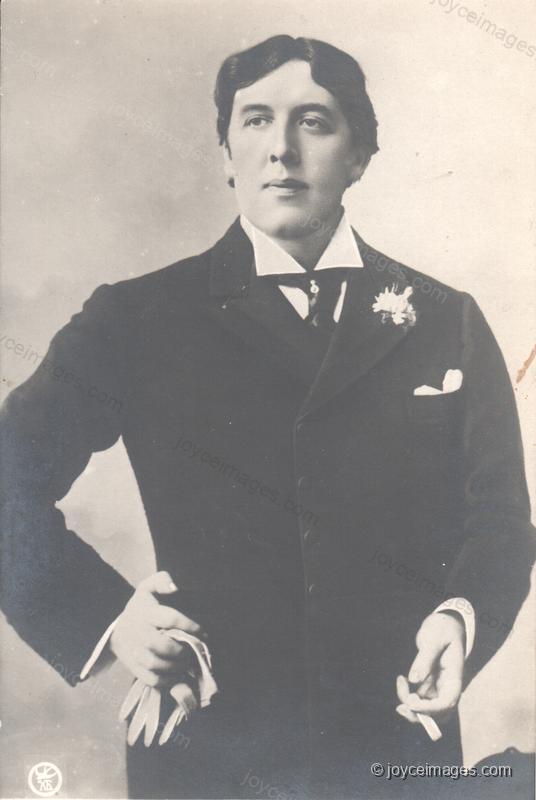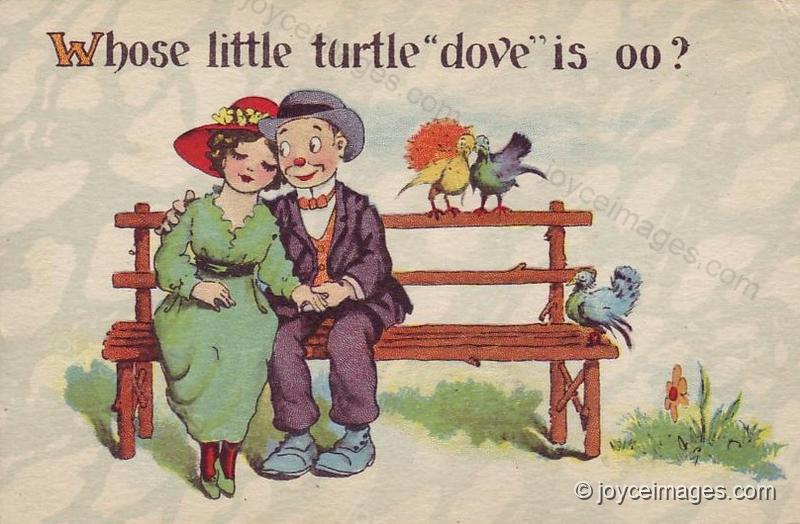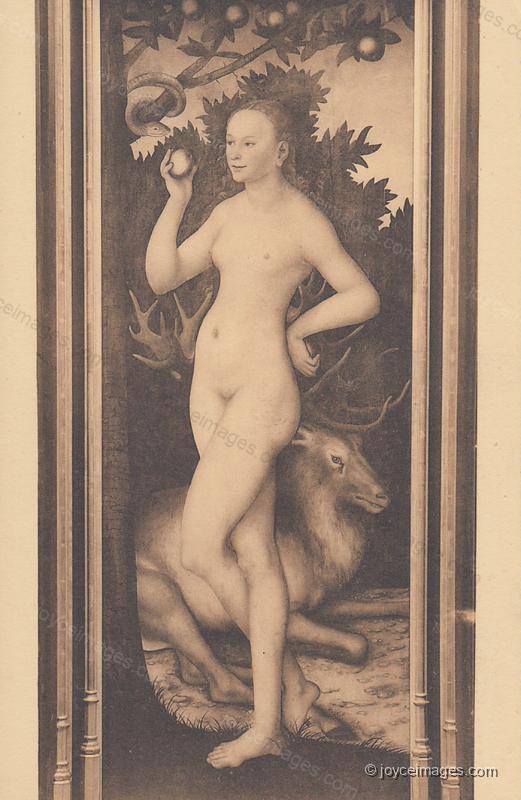From Shakespeare's Cymbeline:
Imogen is princess of Britain, and the virtuous wife of the exiled Posthumus, whose praise of her moral purity incites Posthumus's acquaintance Iachimo to bet Postumus that he can seduce her. When he fails, Iachimo hides in her bedchamber and uncovers her body while she sleeps, observing details of a mole on her breast which he then describes to Posthumus as proof that he had slept with her. Posthumus plots to kill his wife, but the designated killer reveals the plot to Imogen and advises her to hide; she escapes to the woods dressed as a man...
Imogen is princess of Britain, and the virtuous wife of the exiled Posthumus, whose praise of her moral purity incites Posthumus's acquaintance Iachimo to bet Postumus that he can seduce her. When he fails, Iachimo hides in her bedchamber and uncovers her body while she sleeps, observing details of a mole on her breast which he then describes to Posthumus as proof that he had slept with her. Posthumus plots to kill his wife, but the designated killer reveals the plot to Imogen and advises her to hide; she escapes to the woods dressed as a man...
"But, because loss is his gain, he passes on towards eternity in undiminished personality, untaught by the wisdom he has written or by the laws he has revealed. He is a ghost, a shadow now, the wind by Elsinore's rocks or what you will, the sea's voice, a voice heard only in the heart of him who is the substance of his shadow, the son consubstantial with the father.
- Amen! responded from the doorway.
Hast thou found me, O mine enemy?" (U9.476)
- Amen! responded from the doorway.
Hast thou found me, O mine enemy?" (U9.476)
"Entr'acte.
A ribald face, sullen as a dean's, Buck Mulligan came forward, then blithe in motley, towards the greeting of their smiles. My telegram." (U9.484)
A ribald face, sullen as a dean's, Buck Mulligan came forward, then blithe in motley, towards the greeting of their smiles. My telegram." (U9.484)
"— You were speaking of the gaseous vertebrate, if I mistake not? he asked of Stephen.
Primrosevested he greeted gaily with his doffed Panama as with a bauble.
They make him welcome. Was Du verlachst wirst Du noch dienen.
Brood of mockers: Photius, pseudo Malachi, Johann Most." (U9.487)
Primrosevested he greeted gaily with his doffed Panama as with a bauble.
They make him welcome. Was Du verlachst wirst Du noch dienen.
Brood of mockers: Photius, pseudo Malachi, Johann Most." (U9.487)
"He Who Himself begot middler the Holy Ghost and Himself sent Himself, Agenbuyer, between Himself and others, Who, put upon by His fiends, stripped and whipped, was nailed like bat to barndoor, starved on crosstree, Who let Him bury, stood up, harrowed hell, fared into heaven and there these nineteen hundred years sitteth on the right hand of His Own Self but yet shall come in the latter day to doom the quick and dead when all the quick shall be dead already." (U9.493)
"Glo-o—ri—a in ex—cel—sis De———o.
He lifts his hands. Veils fall. O, flowers! Bells with bells with bells aquiring.
— Yes, indeed, the quaker librarian said. A most instructive discussion. Mr Mulligan, I'll be bound, has his theory too of the play and of Shakespeare.
All sides of life should be represented.
He smiled on all sides equally.
Buck Mulligan thought, puzzled." (U9.500)
He lifts his hands. Veils fall. O, flowers! Bells with bells with bells aquiring.
— Yes, indeed, the quaker librarian said. A most instructive discussion. Mr Mulligan, I'll be bound, has his theory too of the play and of Shakespeare.
All sides of life should be represented.
He smiled on all sides equally.
Buck Mulligan thought, puzzled." (U9.500)
"A flying sunny smile rayed in his loose features.
— To be sure, he said, remembering brightly. The chap that writes like Synge." (U9.509)
— To be sure, he said, remembering brightly. The chap that writes like Synge." (U9.509)
"Mr Best turned to him.
— Haines missed you, he said. Did you meet him? He'll see you after at the D. B. C. He's gone to Gill's to buy Hyde's Lovesongs of Connacht.
— I came through the museum, Buck Mulligan said. Was he here?" ([U9.512])
— Haines missed you, he said. Did you meet him? He'll see you after at the D. B. C. He's gone to Gill's to buy Hyde's Lovesongs of Connacht.
— I came through the museum, Buck Mulligan said. Was he here?" ([U9.512])
"— The bard's fellowcountrymen, John Eglinton answered, are rather tired perhaps of our brilliancies of theorising. I hear that an actress played Hamlet for the fourhundredandeighth time last night in Dublin. Vining held that the prince was a woman. Has no-one made him out to be an Irishman? Judge Barton, I believe, is searching for some clues. He swears (His Highness not His Lordship) by saint Patrick." (U9.516)
"— The most brilliant of all is that story of Wilde's, Mr Best said, lifting his brilliant notebook. That Portrait of Mr W. H. where he proves that the sonnets were written by a Willie Hughes, a man all hues.
— For Willie Hughes, is it not? the quaker librarian asked.
Or Hughie Wills? Mr William Himself. W. H.: who am I?
— I mean, for Willie Hughes, Mr Best said, amending his gloss easily. Of course it's all paradox, don't you know, Hughes and hews and hues, the colour, but it's so typical the way he works it out. It's the very essence of Wilde, don't you know. The light touch." (U9.522)
— For Willie Hughes, is it not? the quaker librarian asked.
Or Hughie Wills? Mr William Himself. W. H.: who am I?
— I mean, for Willie Hughes, Mr Best said, amending his gloss easily. Of course it's all paradox, don't you know, Hughes and hews and hues, the colour, but it's so typical the way he works it out. It's the very essence of Wilde, don't you know. The light touch." (U9.522)
"Tame essence of Wilde.
You're darned witty. Three drams of usquebaugh you drank with Dan Deasy's ducats." (U9.532)
You're darned witty. Three drams of usquebaugh you drank with Dan Deasy's ducats." (U9.532)
"How much did I spend? O, a few shillings.
For a plump of pressmen. Humour wet and dry.
Wit. You would give your five wits for youth's proud livery he pranks in. Lineaments of gratified desire.
There be many mo. Take her for me. In pairing time. Jove, a cool ruttime send them. Yea, turtledove her." (U9.535)
For a plump of pressmen. Humour wet and dry.
Wit. You would give your five wits for youth's proud livery he pranks in. Lineaments of gratified desire.
There be many mo. Take her for me. In pairing time. Jove, a cool ruttime send them. Yea, turtledove her." (U9.535)
